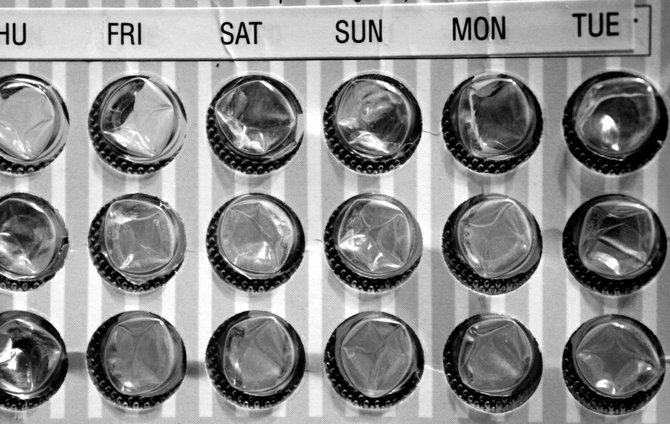A new report in Obstetrics and Gynecology has found that providing birth control at no cost to women and teens can substantially reduce unplanned pregnancies and cut abortion rates by about 70 percent. Photo by Courtesy Flickr/M. Mark
Mississippi's high rate of unintended pregnancies is not only connected to our No. 1 rank in the country for teen births, but it's also the cause of many health problems during and after pregnancy for both mother and infant—including infant and maternal death.
A new report in Obstetrics and Gynecology has found that providing birth control at no cost to women and teens can substantially reduce unplanned pregnancies and cut abortion rates by about 70 percent.
As the state American Congress of Obstetrics and Gynecology Executive Board and practicing Mississippi OB-GYNs, we know first hand how critical contraception is to the health and wellbeing of women and families in our state. Birth control can not only help women and families choose when they are ready for a baby, it also can help women get healthy before and between pregnancies, and even prevent some malignancies.
In 1999 the CDC declared family planning one of the 10 greatest public-health achievements of the 20th century: "Smaller families and longer birth intervals (between children) have contributed to the better health of infants, children and women, and have improved the social and economic role of women," the department wrote then.
However, the United States still has the highest rate of unintended pregnancies in the developed world. About half of all pregnancies in the U.S. each year—3 million of them—are unintended. Approximately 82 percent of teen pregnancies are unintended.
Adolescent mothers experience higher rates of preterm birth, low birth-weight infants and infant deaths. Teen mothers are more likely to drop out of high school, remain single, live in poverty and rely on public assistance. Their children are more likely to have behavior problems, rely heavily on public health care, drop out of high school and then become teen parents themselves. This cycle repeats itself at an annual cost to U.S. taxpayers of about $11 billion.
An estimated 10 percent of all infant deaths could be prevented if all pregnancies were planned. Women with unintended pregnancies are more likely to delay prenatal care and to expose their fetuses to poor nutrition and harmful substances, putting their babies at higher risk for significant health problems and even death. Using contraceptives to space pregnancies at least 18 months apart not only improves maternal health, but also lowers the risk for high-cost, low birth weight and preterm babies.
Contraception is literally lifesaving for women with serious medical conditions like cancer, heart disease and diabetes.
Americans clearly support giving women full insurance coverage for all FDA-approved contraceptives without co-pays or deductibles. Hart Research Associates found that three out of four voters believe we should do everything we can to assure Americans have affordable access to birth control.
The FDA should eliminate restrictions on over-the-counter access to emergency contraception, as has been done in most other countries. And most importantly, all hospitals should offer emergency contraception to every woman who seeks care as a result of sexual assault.
Decisions about a patient's medical care, including contraception, are best made between the patient and the treating physician. All women need accurate, evidence-based medical advice from their physicians as an essential part of their health care, including counsel on when contraceptive use is indicated and what kind of contraception is best for them.
Some U.S. women are denied contraceptives even when they have insurance. Medicaid, which covers more than two-thirds of Mississippi births, places strict limitations on women who want postpartum sterilizations such as tubal ligations. Half of all women who are denied sterilizations will be pregnant again within a year.
Contraception is a basic and essential element of women's preventive health care and a basic public-health necessity. Family planning is about the freedom to decide when and if to have children. Every woman should have this freedom as part of her essential health benefits—because it is good for women and families, good for each woman's future children, and because it will improve the overall health of our country and its citizens.



Comments
Use the comment form below to begin a discussion about this content.
comments powered by Disqus